Experts estimate that China’s re-education through labor programs holdanywhere from 300,000 to one million citizens, but beyond that, notmuch else is known. France24’s report looks at the secrecy of thesecamps and some of the their tenants’ more suspicious deaths. Someexperts believe Beijing is trying to do away with such camps, but ismeeting push-back from provincial government officials.
China Archive
Free Newsletter
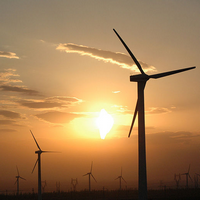
In a landmark address to the U.N. Climate Change Conference last month, Chinese President Hu Jintao announced Beijing’s commitment to trim the explosive growth of China’s carbon emissions “by a notable margin.” But he also reiterated his country’s hackneyed dictum that industrialized countries should bear most of the burden for emissions-cutting. Hu’s headline-grabbing speech captured the essence of China’s Janus-faced climate change policy — which, despite remarkable progress, continues to be bogged down with implementation problems and overshadowed by China’s concerns with economic growth and its leadership role in the developing world. Currently the world’s largest emitter of greenhouse gases, […]
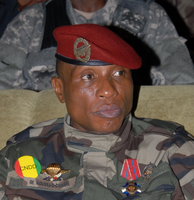
The United States and France have joined a chorus of disapproving African states to condemn recent events in Guinea — events that have dimmed hopes that the isolated and resource-rich West African nation might finally achieve democratic civilian rule following the death last December of longtime autocrat Lansana Conté. One voice that has opted against singing from the international hymn book, however, is arguably Guinea’s most important interlocutor: China. Instead of opprobrium, Beijing appears to have offered Guinea incentive, in the form of a multi-billion dollar investment in oil and minerals — the latest installation of the checkbook diplomacy that […]
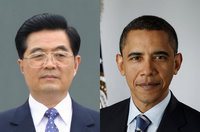
As the People’s Republic of China celebrated its 60th anniversary, many observers understandably used the occasion to advocate strengthened cooperation between China and the United States. However, the substance of bilateral cooperation depends considerably on the balance of power between the two countries. The ongoing debate over the trend in the Sino-American balance centers primarily on three problematic assessments: – The “G-2” assessment, which argues that China and America are the two powers whose partnership is most needed to address global challenges, discounts the cooperation that they require from Europe and emerging powers to make substantial headway. – The “Chinese […]
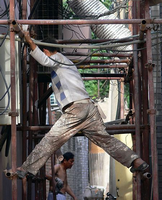
Americans’ fear of China right now is palpable. We see danger in its products, in its vast reserves of our currency, in its growing military might, in its ravenous hunger for raw materials, and in its single-party state. With “Made in China” seemingly stamped on the bottom of everything we bring into our already overstuffed houses, we worry that China will soon buy and sell us, just like Japan seemed poised to do two decades ago. In short, we no longer feel on top of the global economy. It’s somebody else’s “age.” Roughly a century ago, that’s exactly how the […]
If you haven’t seen this Onion clip (via Laura Rozen), it’s worth taking a look. My reaction to the Onion is usually just to think, “That’s funny.” This one actually made me laugh. But then it made me think. (I know, I know. Humor. Less.) It puts its finger, in a way that our nation’s comics seem better able to do these days than our political pundits, on a pretty determinant question in international relations. Namely, are nations, like raging forest fires, guided by natures that are unchanging and unresponsive to engagement and dialogue? Or are they guided by reason, […]
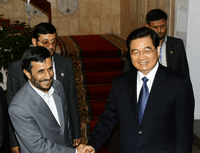
On Iran, China increasingly seems to be the odd man out. Not only have the French taken a surprisingly hard line in international efforts to regulate the Iranian nuclear program, but there are signs that Russia may be stiffening its resolve as well. China, by contrast, seems invariably to caution patience. Meanwhile, Chinese firms are expanding into the Iranian market at the same time that many international actors are leaving. There was a time not so long ago when China would have been expected to undermine Western policy. In the 1960s and 1970s, the People’s Republic worked to chip away […]
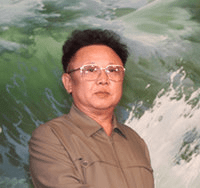
Last week proved to be a busy one for international efforts to negotiate a settlement to North Korea’s nuclear weapons program. Although some progress occurred, longstanding obstacles persist while new impediments have arisen. The policies of the Democratic People’s Republic of Korea (DPRK) represent a major obstacle toward realization of U.S. President Barack Obama’s Nobel Prize-winning nuclear arms control agenda. Obama delivered his well-received April 5 speech in Prague just days after North Korea resumed testing long-range “rockets” despite a U.N. Security Council (UNSC) resolution prohibiting such missile-related activities. More recently, the president also singled out North Korea, as well […]
The debate over the Afghanistan War is now swirling around in a few different directions, with the primary focus in recent weeks being on short-term options and the Obama administration’s process for policy development and implementation. That’s understandable, given, on the one hand, the urgency of the situation on the ground — as reported by Gen. Stanley McChrystal in his strategic review, and independently by the analysts who advised him in the preparation of that document — and on the other, the Obama administration’s “sticker shock” when presented with the resources needed to wage its stated strategy of a counterinsurgency […]
